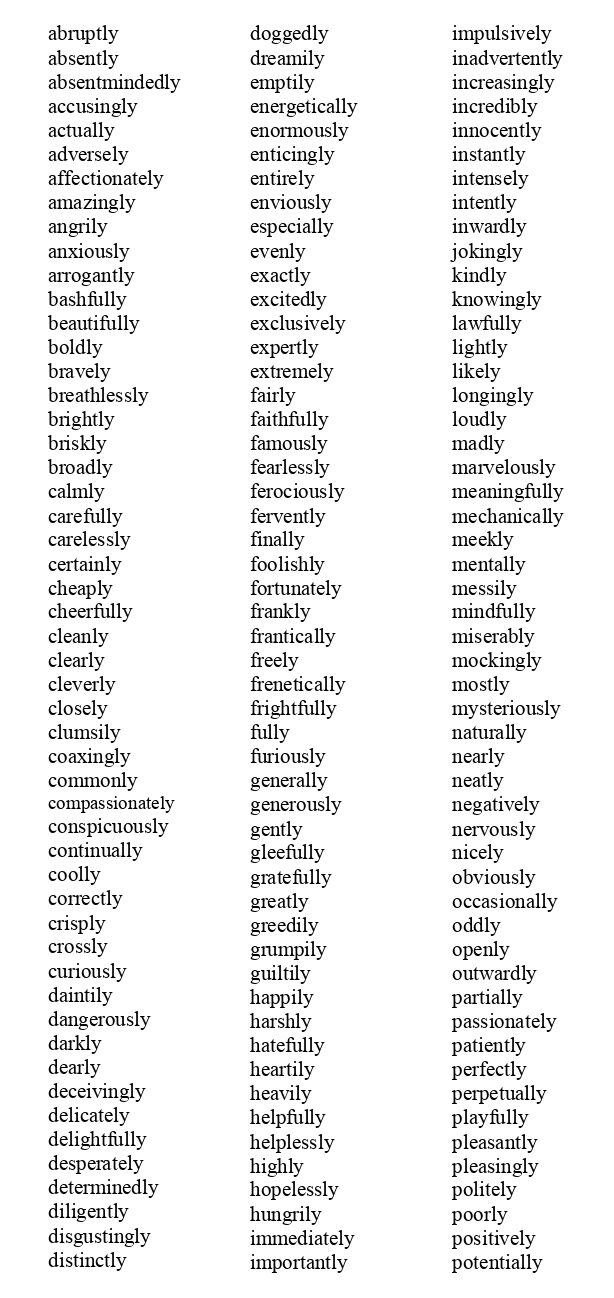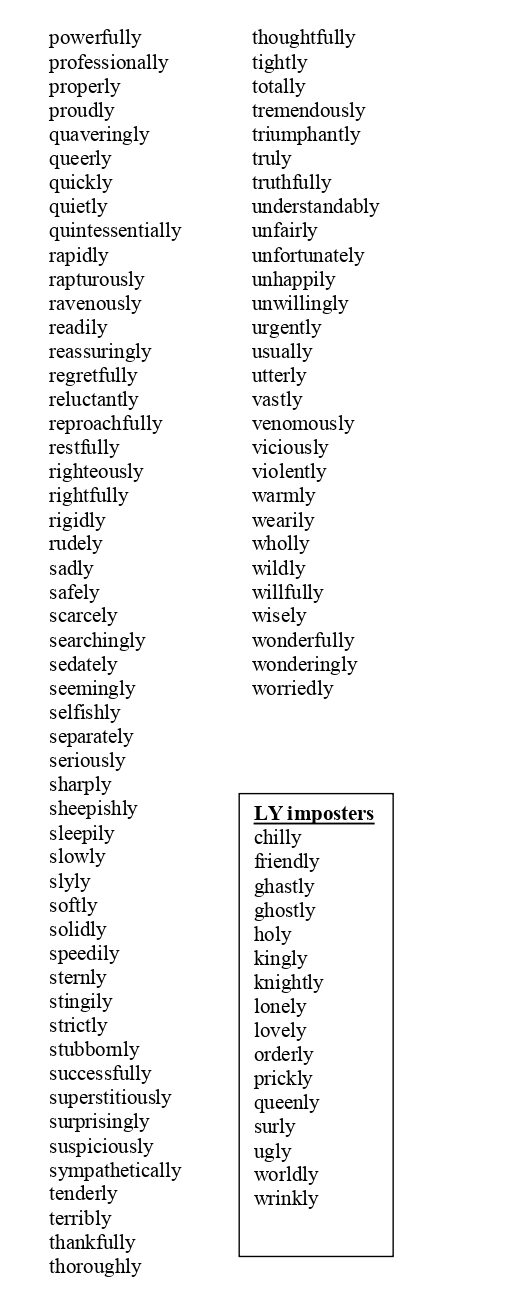Most people think adverbs are formed by simply adding “-ly” to any adjective. Although this is true for many English adverbs, it is not the case! With this being said, let’s look into some rules we must follow when forming and using adverbs.
What Are Adjectives And Adverbs?
To understand when to use “-ly,” we first must understand what adjectives and adverbs are and how they work.
In short, adjectives are words that describe pronouns and nouns. They can be placed anywhere in a sentence but always refer back to the subject. For example:
- Your baby is adorable.
- He was an angry man.
On the other hand, adverbs are words that act as modifications of adjectives and verbs.
Adding “-ly” To Words
You can add “-ly” for most common adjectives to create an adverb. Also, if your adverb answers “how” something acts in a sentence, you can most likely add the “-ly.” For instance:
- Adjective form: We walked slow today.
- Adverb form: We walked slowly today.
There are some words, though, such as “fast,” which can act as an adverb on their own. For these words, you shouldn’t add the “-ly.”
Related: Adjective “Fast” vs. Adverb “Quickly”
Additionally, if you are trying to compare things using adverbs and adjectives, you should drop the “-ly.” In most cases, special comparative forms of adverbs can be used. There are some, however, such as “bad,” which you have to use “more/less” to create a comparison. For instance:
- Incorrect: I felt more badly about hurting you.
- Correct: I felt worse about hurting you.
- Special Case: I spoke more quietly to avoid disturbing the class.
One last rule has to do with verbs that relate to the senses of taste, smell, sight, or touch. With these verbs, you should ask if they are actively used within the sentence. If the verb is active, then you should add “-ly.” For example:
- Incorrect: The chocolate smelled deliciously
- Correct: The chocolate smelled delicious
In this example, the chocolate isn’t actively smelling something, so you should not add the “-ly.”
- Incorrect: The man sniffed quiet.
- Correct: The man sniffed quietly.
In this example, the man in question actively smells without making noise. Due to this, you should add the “-ly.”
List of Adverbs Ending With “-Ly”


Want to sharpen your business writing skills? Discover our acclaimed online courses at syntaxtraining.com






